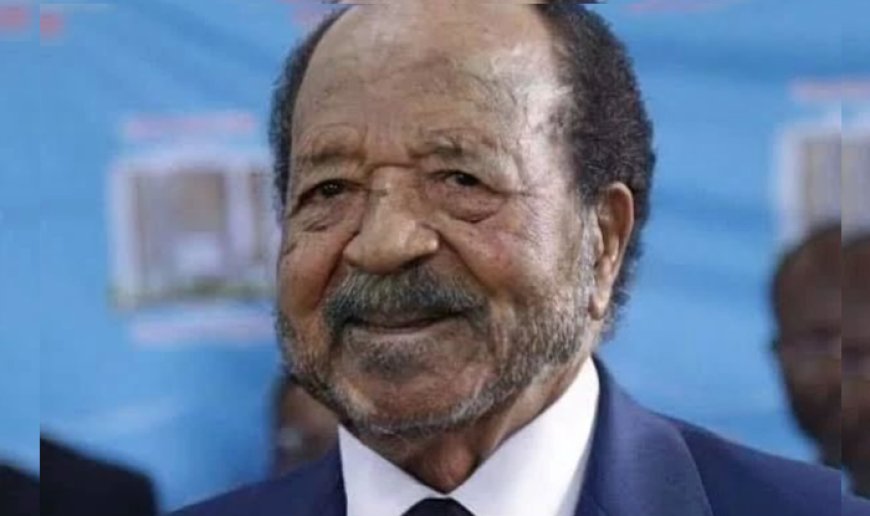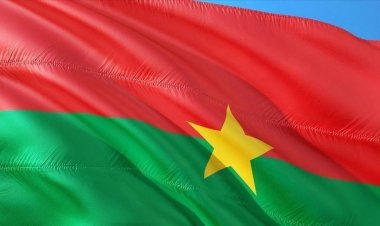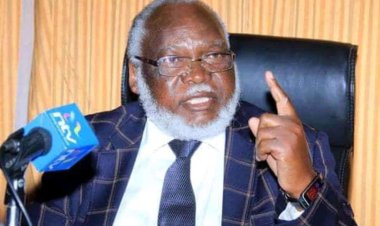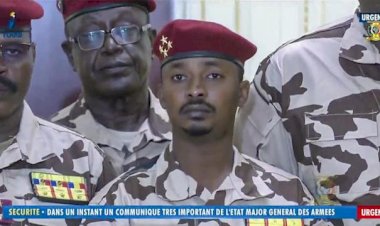Bakary upbeat as Cameroonians elect president

By Joshua Odeyemi, Sagir Kano Saleh, Dalhatu Liman with agency reports
Mon, 13 Oct 2025 5:05:09 WAT
Voting ended on Sunday evening in Cameroon’s presidential election, where 92-year-old President Paul Biya, the world’s oldest serving head of state, is seeking an eighth term in office.
Biya, who has ruled the Central African nation for 43 years, faced 11 opponents, including several of his former allies. Among them is Issa Tchiroma Bakary, a former employment minister who resigned from government in June after more than two decades of working with Biya.
Bakary, 79, has emerged as Biya’s leading challenger following the disqualification of top opposition figure Maurice Kamto by the Constitutional Council, a decision criticised by rights groups, including Human Rights Watch, as undermining the credibility of the electoral process.
It was reported that Tchiroma received unprecedented endorsement in many areas, including his home base Garoua.
Biya voted at a primary school in the capital Yaounde, telling reporters that he wouldn’t comment on his plans until the results were in.
There is a single round of voting in Cameroon and whoever gets the most votes is the winner.
Cheukam Ginette, a 34-year-old environmentalist and first-time voter, said she won’t choose Biya.
“Things have to change. First of all, life is expensive, getting medical care is not easy,” she said outside of a polling station in Yaounde. “There are no roads, we have potholes everywhere. Everything is
ruined. That’s why I voted for the opposition. I do not have confidence in the electoral process because we know our country but I’m hopeful.”
ad
Polling stations opened at 8:00am and closed at 6:00pm (0700 to 1700 GMT).
The eight million Cameroonians who are eligible to vote in the one-round election have, for the most part, only known one ruler in their lifetime.
Biya has been in power since 1982 and has won every election in the past 20 years by taking more than 70 per cent of the ballot.
“Nothing is certain; let’s wait until we know the name of the elected official,” Biya told reporters after he cast his ballot in the Bastos neighbourhood, near the presidential palace.
“We shouldn’t be naive. We know full well the ruling system has ample means at its disposal to get results in its favour,” Cameroonian political scientist Stephane Akoa told AFP.
But he said that the campaign in recent days had been “much livelier” than was usually the case at that stage.
“This poll is therefore more likely to throw up surprises,” he said.
Biya has kept his customary low profile during the campaign, appearing in public on Tuesday for the first time since May, looking visibly fit.
He held a rally in Maroua in the strategic Far North region, which has 1.2 million eligible voters and makes up the second largest voting bloc in the country.
For years, it was considered a Biya stronghold, but several former allies from the area are now running against him.
Youth vote
The 11 rival candidates have made numerous public appearances in recent weeks, each promising a new dawn for Cameroon in place of Biya’s entrenched hold on public life.
The president’s main rival, Bakary, also campaigned in the regional capital Maroua this week.
In stark contrast to Biya, whose appearance attracted a sparse crowd of just a few hundred people, Bakary was welcomed in the streets of his home region by thousands of supporters waving placards that hailed “Tchiroma the Saviour”.
Biya is only the second president Cameroon has had since its independence from France in 1960.
It is central Africa’s most diversified economy with an abundance of natural and agricultural resources.
However, around 40 per cent of the population lives below the poverty line, according to World Bank figures for 2024, and unemployment stands at 35 per cent in the major cities.
Young people hunger for change, Akoa said, but not yet to the point where they will take the risk of protesting en masse as in other countries in Africa and Asia.
Cameroonians complain about the high cost of living, a lack of clean drinking water, healthcare, and quality education.
But their frustrations remain confined to social media for the time being.
“Many young people intend to vote,” Akoa said.
“There is a positive sign of change, but perhaps not strong enough to bring young people out onto the streets, as we saw in Madagascar, Tunisia, and elsewhere.”
The government has authorised 55,000 local and international observers to monitor the vote, including representatives of the African Union. The Constitutional Council has until October 26 to announce the final results.
But several internet platforms say they will compile the results independently, drawing criticism from the government, which says they are attempting to manipulate public opinion.
The vote takes place in the shadow of a conflict between separatist forces and the government that has plagued the English-speaking regions since 2016. Turnout was particularly low in these areas in 2018.


















































